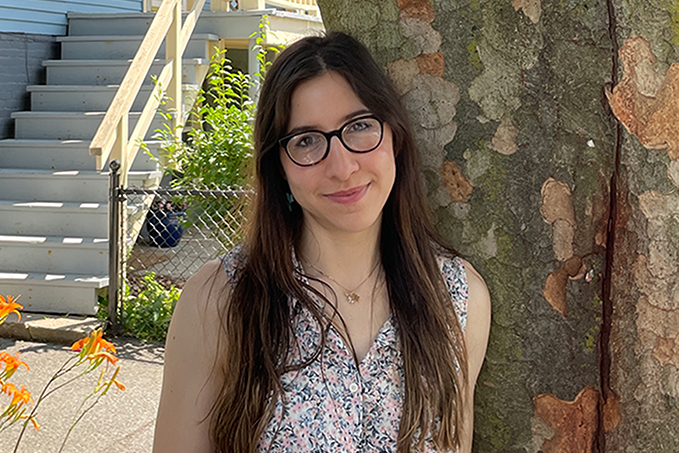Gabriella Carmona

Biography
Gabriella Carmona is pursuing a Master of Urban and Regional Planning at UCLA and holds a bachelor’s degree in History and Political Science from Williams College. She leverages urban design and policy as an opportunity to combat social and economic injustice — from democratizing data that brings to light spatial disparities to empowering communities with the tools to redesign their neighborhoods. While pursuing her degree, she has worked at the UCLA Latino Policy and Politics Institute (LPPI), where she supports the team’s burgeoning research portfolio on Latino representation in state government.
Previously, she has served as an urban planning intern at Agency Landscape + Planning, and as a senior policy associate at New American Economy (NAE), where she supported a network of over 100 cities, counties, chambers of commerce, and nonprofits with original research, best practices, and direct technical assistance to support the development of multi-sector immigrant integration plans.
Project Overview
My research project seeks to address the critical issue of housing insecurity in California, with a particular focus on how this problem disproportionately affects Latino communities. California is grappling with a housing crisis that has left millions of individuals without secure and affordable housing. Traditionally, the government has relied on the U.S. Department of Housing and Urban Development’s (HUD) point-in-time estimates to gauge the extent of homelessness and housing instability, but concerns persist about the accuracy of these counts, especially in capturing the number of Latinos experiencing housing insecurity. Instead, this project combines various publicly available data sources with in-depth case studies to identify those who find themselves in housing insecurity (e.g., individuals living on the streets, shelters, vehicles, motels, substandard housing or overcrowded/shared spaces). This research aims to uncover the extent of the housing insecurity issue and to propose practical solutions and policy recommendations to alleviate the housing insecurity crisis in California.
Why is this topic, specifically, important to you?
I identify as Latina and have dedicated my professional and academic career to political advocacy and equity work aimed at improving the material conditions of Latinos and other communities of color across the country. Before starting the master’s program, I spent four years in nonprofit political advocacy, developing policy and research tools to help community and civic leaders develop community-based solutions to improve local economic, political, and social infrastructure. As a senior policy associate at NAE, I collaborated with city planners, department staff, businesses, and community leaders to help them develop need assessments, strategize outreach efforts, and convene local multi-sector stakeholders to outline recommendations for immigrant inclusion. Despite a focus on immigrants, solutions identified in these plans were often universal. They tackled localized barriers that sustain inequity across race, class, and gender — from a lack of affordable transportation and housing to disparities in educational attainment and health outcomes. And most recently, as a policy analyst at UCLA LPPI, I have developed factsheets, reports, webinars, and engagement opportunities that shed light on the economic and political conditions of Latino communities. I see this project as an extension of the work I’ve been committed to for most of my professional and academic career.
Who are the partners involved in this project and how will you be working with them?
UCLA LPPI is my client for this project and a crucial collaborator in this work. Additionally, I have formed a small advisory committee of practitioners and academics that are providing critical support and insights throughout the project.
How do you hope that this project will impact the field moving forward?
I hope to contribute to the existing literature and shed light on the unique needs of housing-insecure individuals, specifically Latinos. Available counts are undoubtedly an under count of those suffering through housing instability and precarity today. Targeting chronically sheltered and unsheltered populations is a crucial strategy in mitigating the immediacy of homelessness. Still, it is arguably the tip of the iceberg when considered within the extensive issue of housing insecurity. I hope my project can contribute to advocacy efforts for securing better data on who’s most impacted by the state’s and country’s ongoing housing affordability crisis, and ensure that we’re allocating the right services to circumvent future homeless and housing instability.
Fellow at a Glance
FELLOWSHIP YEAR
ACADEMIC BACKGROUND
PROJECT TITLE
